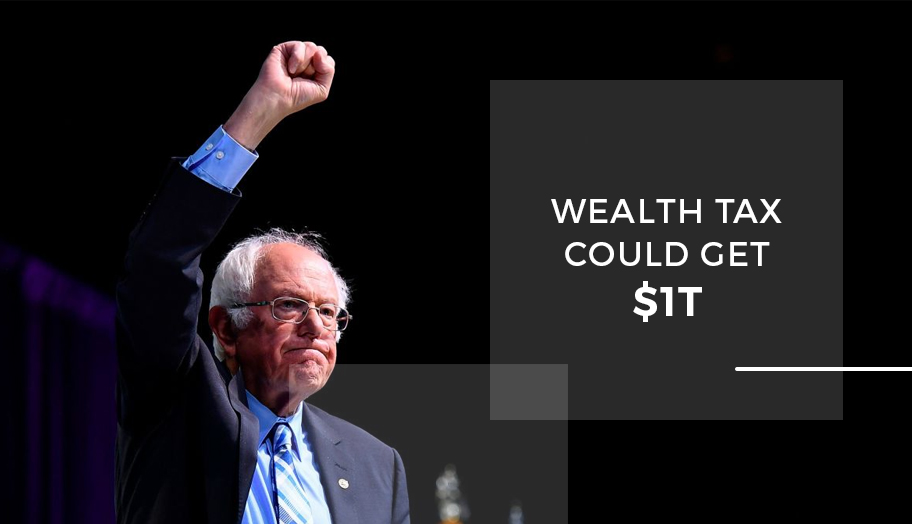A study conducted by Wharton School of the University of Pennsylvania showed that the wealth tax proposal by presidential candidate Bernie Sanders will be gathering at least $1 trillion compared to campaign estimates. CNBC reported that this could have a negative impact on Sanders’ plans which depend on the funding pooled through the tax.
According to the research, the plan would be raising $2.8 trillion to $3.3 trillion over 10 years. However, this amount is around $1 trillion to $1.5 trillion lower than the figure estimated by Sanders’ campaign, which is $4.5 trillion.
CNBC noted that the results “could undercut the critical funding needed to support his plans.” Sanders’ platform covers public health care, education, and other government-supported programs. Particularly, this is expected to affect plans for Medicare for All and student loan reduction.

However, the study noted that while the wealth tax would fall short on its estimates, the candidate’s proposed estate tax expansion would be able to obtain an additional $267 billion over 10 years.
Meanwhile, the researcher also calculated the economics effects of the taxes proposed by the candidate. According to the Wharton paper, the US economy would fall by 1.1% by 2050. This depends on how Congress would manage revenues. Moreover, the proposals are to have negative effects on business investment.
Supporters say that with affordable housing and healthcare, the effects of such drop would be counterbalanced. They also claim that the programs could improve the productivity of workers as the plans would create a “healthier, smarter workforce.”
Aside from Sanders’ campaign, the Wharton School study also crunched the numbers on former Vice President Joe Biden’s proposal. The research found that this program would raise $600 to $900 billion less than the amount projected by Biden’s camp.













